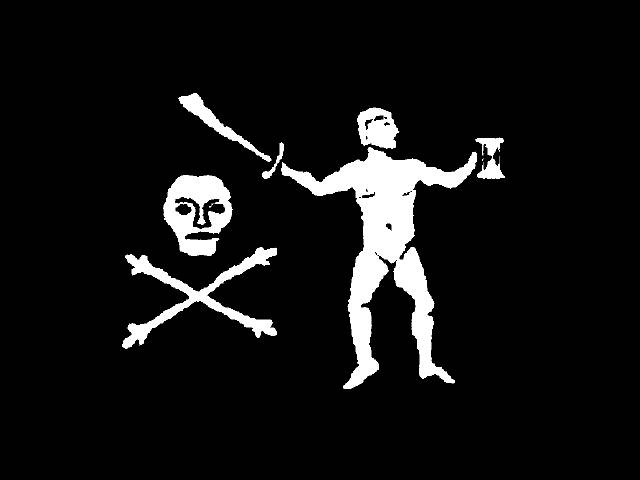
Background Music - Katy Adelson 
Flag Attributed to Kennedy which was also identical to the flag of Jean Thomas Dulaien 
Captain Walter Kennedy However, as it turned out, some recently pardoned pirates were added to the crew of the Buck, and before it reached Havana, they along with some of the original crew including Kennedy, mutinied, killing the captain Jonathan Bass, along with the other crew members who did not join their mutiny. Howell Davis, another mutineer, was elected captain. Months later, Kennedy was with Davis on the island of Principe when his party was ambushed there by the Portuguese Governor's men. Kennedy was the only member of the shore party to escape back to the ship alive. With Davis dead, Bartholomew Roberts was elected as his successor. Later on while serving under Roberts, Kennedy was left in charge of Roberts ship, the Royal Rover, and a large part of its crew, as Roberts and forty of his crew chased a possible prize in a captured sloop off the coast of Surinam. Kennedy took advantage of this opportunity to abandon Roberts and proclaim himself captain. Under his leadership, the crew decided to give up piracy and set sail for Ireland. However, Kennedy had no knowledge of navigation as Roberts did, and when the crew found out, they threatened to throw him overboard, but ultimately did not carry the threat out. Kennedy's poor navigation skills eventually led them to land on the north-west coast of Scotland instead of Ireland. Here the crew tried unsuccessfully to pass themselves off as shipwrecked mariners. Seventeen of the crew were arrested near Edinburgh and put on trial for piracy; nine of them were hanged. Kennedy managed to avoid capture and reached Ireland. After having spent most of his pirate loot in Dublin, he came to Deptford where he is said to have kept a brothel. When one of his prostitutes accused him of theft, he was sent to Bridewell Prison, where as bad luck would have it, he was recognized and denounced as a pirate by the mate of a ship he had taken. Kennedy was quickly put on trial for piracy. He was hanged on July 21, 1721 at Execution Dock. It appears Kennedy was a better thief than a pirate. Perhaps that is why he decided to give up piracy so quickly and return to England. BIOGRAPHIES / SOURCES 
|
Darmowy hosting zapewnia PRV.PL